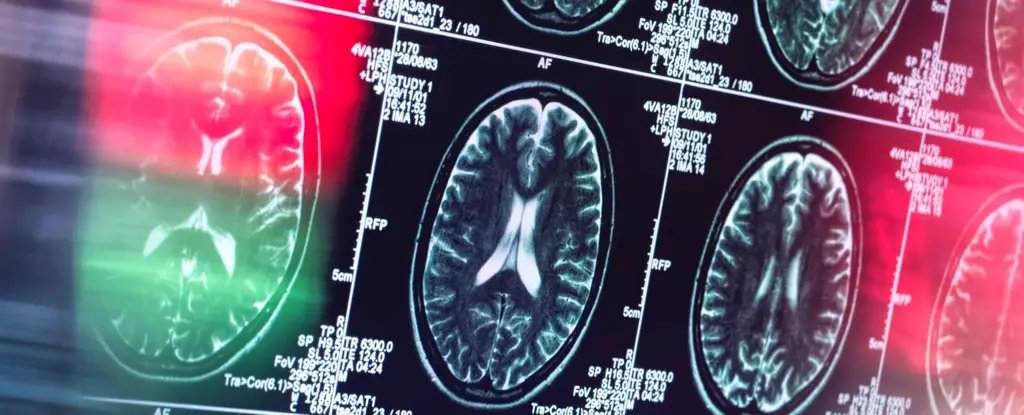Recent research conducted by a team from Stanford University has shed light on the dysfunctions in two specific brain systems that are associated with psychosis. Psychosis, characterized by disconnections from reality such as hallucinations and delusions, can occur independently or be a symptom of conditions like schizophrenia and bipolar disorder. The study by cognitive neuroscientist Kaustubh Supekar and his colleagues analyzed brain scans of individuals with various conditions, including autism, ADHD, early psychosis, and 22q11.2 deletion syndrome, in comparison to scans of healthy individuals as controls.
Through the use of a machine learning algorithm, the researchers identified differences in brain function between the different groups, focusing on the anterior insula and the ventral striatum. The anterior insula is a crucial component of the salience network that helps direct attention, while the ventral striatum is involved in reward-seeking behavior through dopamine-driven pathways. The study found significant differences in these areas related to information filtering and reward prediction in individuals with 22q11.2 deletion syndrome, as well as those with psychosis. This highlights the importance of understanding the underlying brain mechanisms involved in psychiatric conditions.
The findings of this study have significant implications for the development of treatments and interventions for psychosis. Understanding the specific brain regions and pathways involved in psychosis can pave the way for targeted treatments that directly address the underlying dysfunctions. Current approaches to treating psychosis, such as transcranial magnetic stimulation and focused ultrasound, could potentially be adapted to target these specific brain centers in individuals at risk of developing psychosis.
Enhancing Support and Reducing Stigma
In addition to advancing treatment options, the research team is also dedicated to reducing the stigma surrounding psychosis and increasing support for individuals affected by the condition. Psychosis can be a frightening experience for those who are untethered from reality, and it is crucial to approach individuals with compassion and understanding. By raising awareness about the consistent brain signatures associated with psychosis, the researchers aim to increase empathy and support for those struggling with the condition.
The study on brain dysfunctions in relation to psychosis provides valuable insights into the development and progression of psychiatric conditions. By identifying specific brain systems involved in psychosis, researchers are paving the way for more targeted and effective treatments that address the root causes of the disorder. Additionally, increasing support and reducing stigma for individuals with psychosis is essential in creating a more compassionate and inclusive society.


Leave a Reply